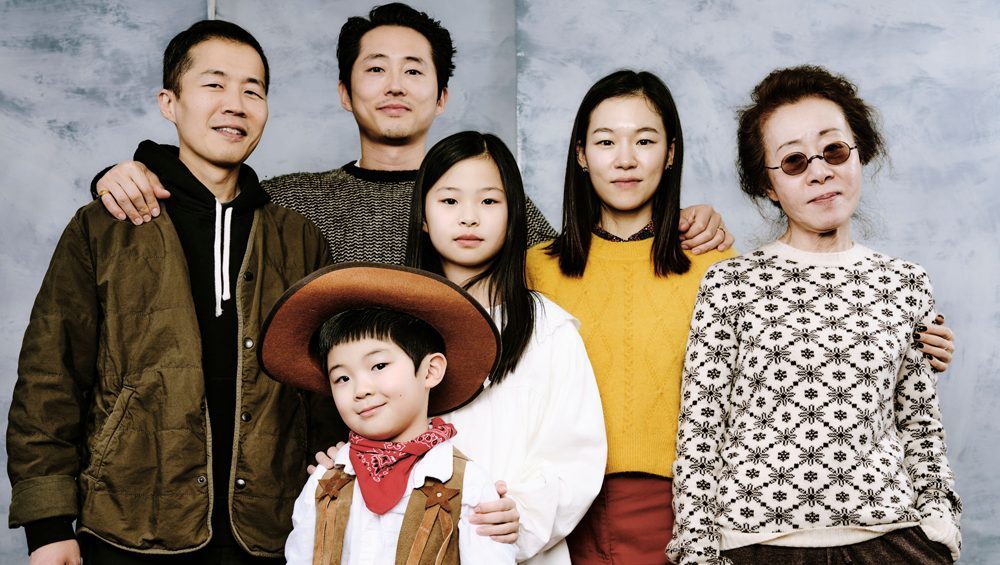Is anyone else afraid to watch “Minari”?
The cast of the film is jam-packed with people in the upper echelon of acting from Youn Yuh-Jung to Steven Yeun. You can predict from the movie poster alone that the message, narrative, and story would be be powerful.
But what if that is what you’re afraid of as a viewer of this film?
I know I’m not alone in feeling this way because of the conversations I’ve had with some of my peers. Not only that, even Youn Yuh-Jung’s own son confessed a similar fear, and his mother revealed in an interview that he had not watched the film yet.
The premise of the film brings to mind for many Asian-Americans the all-too-real and raw reality that many Asian immigrant parents lived through (including mine) as they uprooted their lives in their motherland and began a new pursuit here in America. Though my parents did not settle in rural Arkansas nor farm any land, I still felt a strong connection to the narrative within the film.
The plot of the film presents a common narrative many immigrant families face here in America: An immigrant family moves to the US to seek a better life for the children, meets challenges as foreigners (racism, language, and cultural barriers, etc.), and with the smallest bit of hope and maybe a handful of dollars in their front pocket, pursues the American dream.
But something about this film struck a chord in me before even watching it. I remember watching the first trailer for the film in my office and tearing up. Those few minutes alone created a binary of emotions in my heart: joy, because the story of Asian immigrants to this country was going to be beautifully told for many to see, but also fear. Fear because I didn’t want to confront the harsh realities of emotional, mental, relational, and even physical struggles my parents endured from hustling and grinding in their day-to-day work and experiences as immigrants in this country.
Perhaps this speaks to some unspoken trauma in my life that I haven’t really gotten around to parsing out. If it does, then I think I know what the next steps there are.
Perhaps this speaks to a fear of wanting the ghost of my parent’s immigrant experience to haunt me no longer. I would be lying if I said there wasn’t a lingering weight of guilt on my shoulders when I think of my parents. I want them to live a lavish life at the very most, and at the very least, an easy and simple life. Can I provide that for them? Can I help them achieve that?
Perhaps this speaks to the genuine desire I have of wanting to move on from having a “surviving” perspective to a “thriving” perspective that my parents worked so hard to provide.
And while I wrestled with all of these emotions and thoughts from a film I have yet to see, I sit there wondering, “Am I the only one?”, “Am I taking this too far?”, and “It’s just a movie, right?”
Perhaps this film is done so exceptionally well that it gets people thinking before even having watched it.
Perhaps this is such a powerful film that it requires us to mentally, emotionally, and spiritually prepare ourselves to see “first-hand” the difficulties our parent’s generation had to face in trying to provide a better life for my generation.
Perhaps that’s the point entirely — to get viewers to come face-to-face with the all too real experience many immigrants faced as they settled in this country and tried to make a living. And for those whose story does not reflect this at all, it’s a lesson in recognizing that many folks in this country did not make it to where they are now with a silver spoon in their mouths.
My hope is that I’ll one day be ready to watch this film (sooner than later) so I can grow in greater empathy for my parents. To appreciate their sacrifices even more. I want to continue to bolster my desire to tell them, “Thank you for fighting so that I can flourish.”
My hope is that one day I’ll be able to show this film to my kids and tell them that the ease in which they can live their American lives is because of their grandparents and their generation. My other hope is to show them this film and teach them the value of their Korean heritage and to never lose that despite being an American; the blood in their veins is much thicker than the water they drink.
I’m grateful for films like “Minari” because of the profound impact it’s had on those who have watched it. I’m grateful for films like “Minari” that help immortalize the lived realities that many immigrants have faced and my hope is to see more films like this that share the hopeful yet harsh experiences many minorities in this country encounter.
Photo Credit: Deadline Studio

